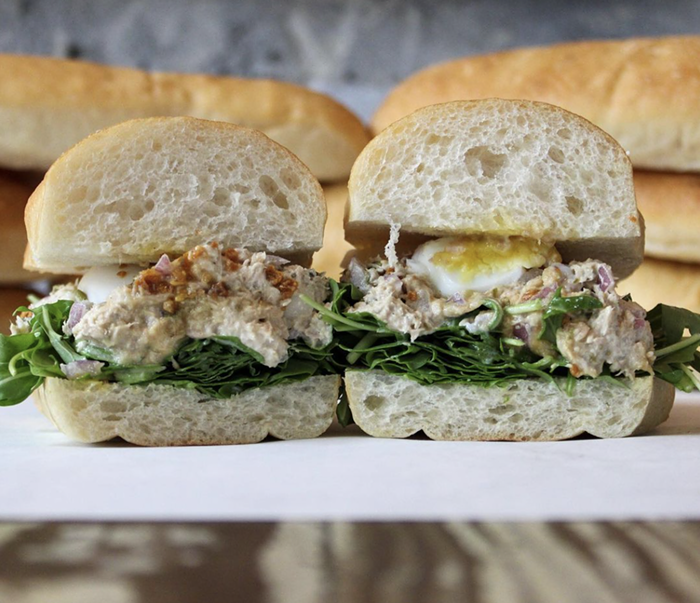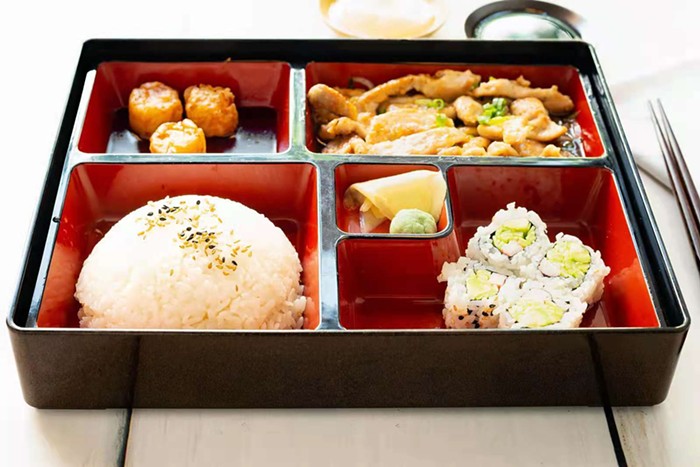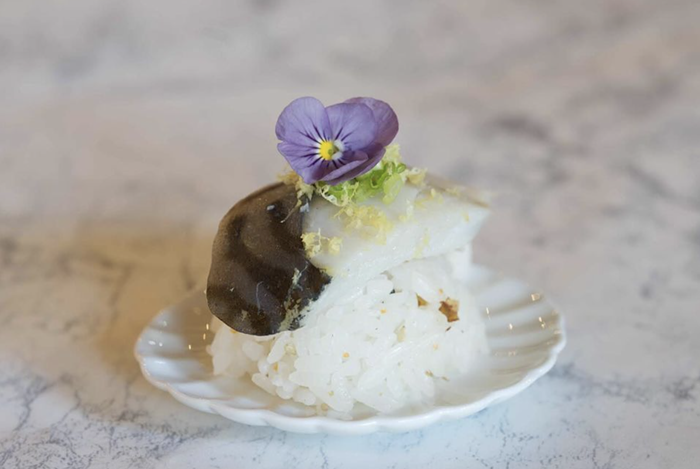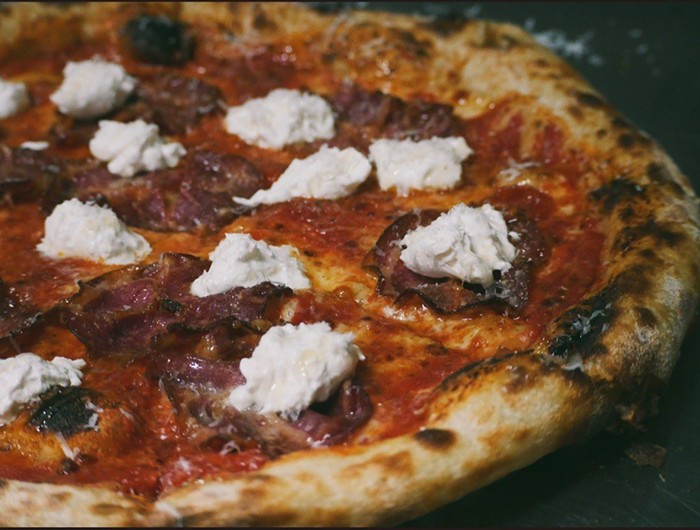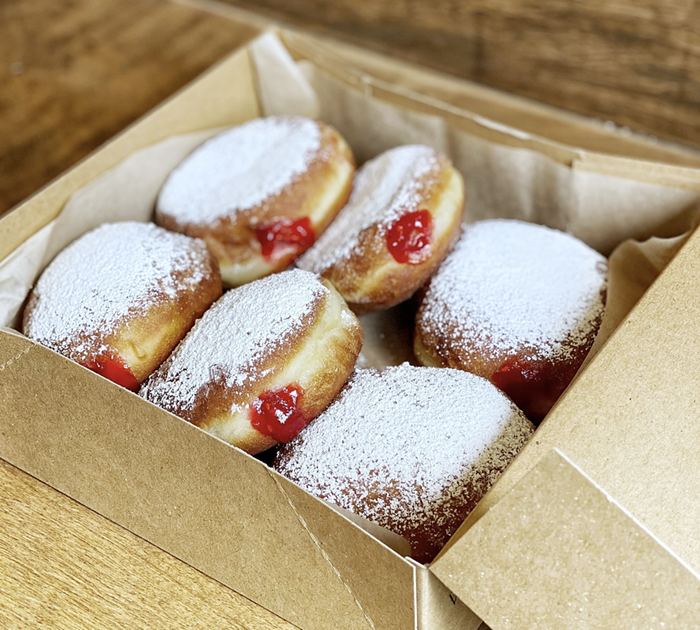Twenty years ago, Hamed Elnazir was in the north of one of the poorest countries in the world, Sudan, coordinating food drops from United Nations planes. Today, he is the chef/owner of a charming French restaurant in the tranquil, leafy, and perfectly middle-class neighborhood of Mount Baker. In the morning, he walks his big dog and reads the papers; in the evening, he prepares dishes that are basically Gallic, but occasionally brightened by North African spices. Hamed speaks three languages—Arabic, French, and English—and holds the opinion that French is much harder than English (his wife agrees: "It's so difficult to speak proper French"). Educated in Alexandria (he holds a degree in communications), Hamed has the face of a scholar, a man whose life has been spent extracting bits of meaning from ancient, dead, and dusty texts. He and his wife, Pascale Brochier, opened A La Bonne Franquette last summer.
Pascale is French. Hamed first met her 20 years ago in Kenya. She was the friend of a friend. He was still employed by the UN, this time doing airlift logistics for Somalia, and she was employed by a major bank in Nairobi ("The British whites called it 'Naa-rob-me,'" says Hamed with a smile). They married in 1996. For a moment, they lived in Lagos, a city that did not leave a favorable impression on them ("Those three years were hard, even for Pascale, and she loves Africa," says Hamed). For a moment, they lived in New York, during which time Hamed attended cooking school. For a moment, they lived in the UK—it was cold and rainy. At this moment, they live in Seattle.
What brought them to this isolated corner of the United States? "The universe did," says Pascale. "It was a bank," explains Hamed. The financial papers and journals call the universe of banks and corporations the global economy: a system of interconnected commercial circuits through which flows money and, to a lesser degree, people. "We had no plans to come here. It just happened that way," says Hamed. He and Pascale are not citizens of a country, but inhabitants of a borderless, post-national world market.
Hamed's in-laws live in France, his mother lives in Sudan, one of his sisters lives in Virginia, and another lives in Cairo. As he stands talking to me (arms crossed, apron white and spotless), the feeling I get from his voice is of the joy an American tourist must feel when, after being lost in a strange and dangerously poor African or Arab city, they meet a man who not only speaks English but also knows the ropes well enough to calmly guide them out of the nightmare and back to their hotel, back to safety. Before I can ask Hamed to recommend a dish, he has to attend to the kitchen, which has become busy. I turn to his wife and ask for a recommendation. "You are an African. You like meat. Order the lamb shank. That will satisfy you." It's true: I love meat, and I'm an African. I order the lamb shank.
I also order a glass of Côtes du Rhône. Halfway into the glass, a large plate arrives with a chunk of meat in a pond of sauce that's banked by grilled vegetables—carrots, potatoes, peas. The meat is perfectly cooked, but the sauce surprises me a little. French restaurants usually serve this dish in a rich, thick, and dark brown sauce. In this case, the sauce is light brown and more spicy than rich. The surprise is not at all bad, and the wine provides each bite with a deep finish. Next to me is the city of Seattle—its buildings, hills, homes dramatically viewed from the window beside the bar. The sun has just set on Beacon Hill, and skyscrapers to the north are reflecting its remaining and beautifully polluted light. The disk of the Space Needle is flying low. The traffic on I-90 is flowing easily. A sparkling stream of silver planes falls from the sky. New people are arriving every minute. Seattle is growing.
"How did you find this place?" I ask Pascale, who is refilling my wine glass. "It was the universe. I'm not kidding," she says. "The universe led us to this place. You know, we live down the road from here. And the number of our house is close to the number of this place, which used to be an office space or something like that. Well, often the mailman got confused and put the mail for this place at our home, and instead of returning the mail to the post office, Hamed would take the dog for a walk and drop it off at the correct number. Well, one day, while dropping the mail, he saw the owner showing the space to people, and he thought, it's a perfect location for a restaurant he wanted to open. The rest is history. But you can see it all has to do with numbers, and the universe is all about numbers. We are here because of the universe." ![]()


